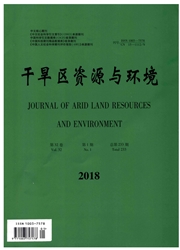

 中文摘要:
中文摘要:
为了揭示货币政策对不同区域住宅用地价格影响的异质性,文中利用2008年第4季度至2015年第1季度的相关季度数据通过构建VAR模型进行实证分析。研究结果表明:1)货币政策对住宅地价存在显著影响。数量型货币政策对住宅地价的影响总体上为正向效应,而价格型货币政策短期内抑制地价上涨、长期促进地价上涨;2)无论是价格型货币政策还是数量型货币政策对住宅地价的影响,都呈现东部和中部明显而西部最不明显的规律;3)不同地区住宅地价受不同货币政策影响程度不同,数量型货币政策相较价格型货币政策影响程度总体上更大一些。基于此应注意货币政策对住宅地价影响的区域差异性,采取区域差别化的政策调控土地市场,不可"一刀切"。
 英文摘要:
英文摘要:
To reveal the regional heterogeneity of the impact of monetary policy on residential land price, the econometric analysis method was employed to conduct empirical analysis by using the data ranging from the fourth quarter of 2008 to the first quarter of 2015. The result shows : 1 ) The monetary policy did have an obvious impact on residential land price. Overall, quantitative monetary poliey had a positive effeet on residential land price, and pricing monetary policy held down the land price in the short term while promoted it in the long run. 2 ) The impact on residential land price of both quantitative monetary policy and pricing monetary policy followed the same rule that eastern and central region were obvious whereas western region was not so obvious. 3) The impact of different monetary policy on residential land price was varied among regions, and quantitative monetary policy as compared to pricing monetary has an stronger impact overall. Therefore, we should notice the regional difference of monetary policy on residential land price, and accordingly take discriminated rather than uniform policy to control land market.
 同期刊论文项目
同期刊论文项目
 同项目期刊论文
同项目期刊论文
 期刊信息
期刊信息
